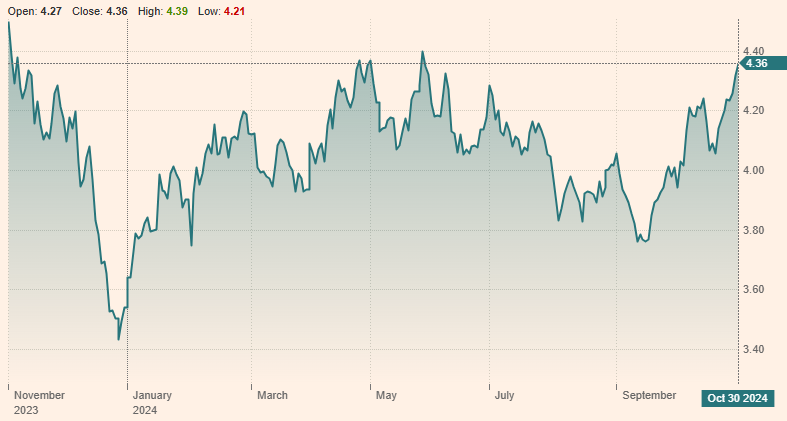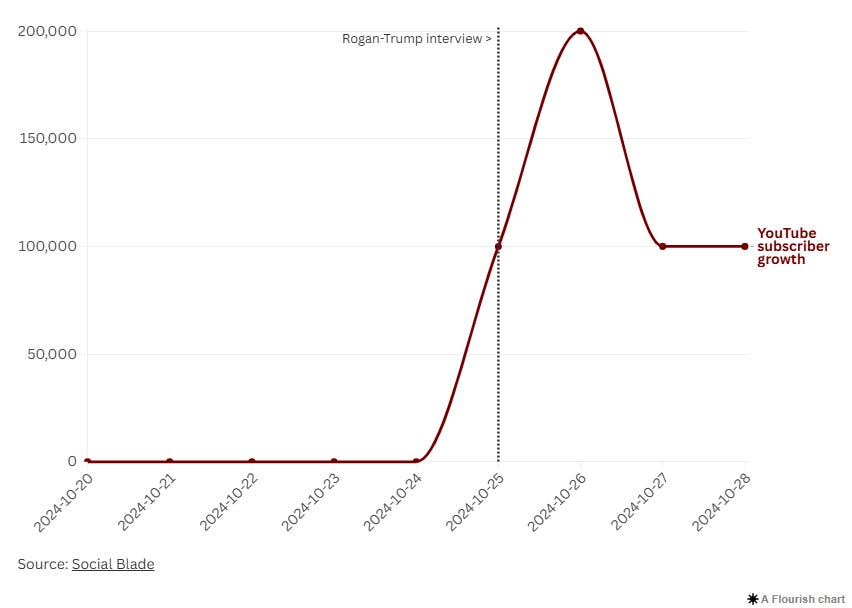What Decides the Outcome of Elections?
Media populism and machine politics clash in the UK and US. Who wins? It's time to take The Sniff Test.
The Village and the River
Sallie Krawcheck is one of the most successful women on Wall Street. Fortune dubbed her ‘the last honest analyst’, she headed wealth management at Citigroup and Bank of America, and now runs a digital investment platform. She understands the difference between culture fit and adding to the culture when growing businesses.
Nate Silver is America’s most well known pollster. In On the Edge he draws a distinction between the Village and the River. The Village is the East Coast establishment, Washington D.C., Harvard Business School and the big media companies. The River is Wall Street and Silicon Valley mixed with degenerates, a combination of calculating risk takers and ego-driven gamblers.
The Village values culture fit and playing by the rules. Silver gives the example of academic research, where accuracy is secondary to being quoted in the right circles. Chemistry World reports a record number of papers retracted last year, while noting the currency of academic progression creates incentives to engage in misconduct.
The River rewards innovation while punishing inaccuracy. The ends justify the means. You learn to take risk by having skin in the game, trading shares or playing poker. The winners push the rules to the limit.
Krawcheck says most jobs require culture fit, while culture adds are for trying something new. In politics, culture fit is the party machine, staying on message and retaining power. Culture add is a populist appeal for change. The distinction is a lens through which to view the UK budget, the US election and the Conservative leadership race.
The Rules Matter
Rachel Reeves is changing the rules. The Chancellor had to find room to increase spending without appearing reckless. To this end, the UK now limits government spending based on Public Sector Net Financial Liabilities, rather than Public Sector Net Debt excluding the Bank of England. The details are designed to put people off, but here’s a primer from the Institute of Government.
PSNFL allows Reeves to spend more. The rules now include some additional spending commitments, mostly local government pension schemes, and assets expected to generate income. These assets are stakes in private companies and student loans. It’s worth remembering as the government ramps up spending that this is justified by assuming students repay their debts.
Gordon Brown introduced the fiscal rules in 1997. He needed to convince investors that the wild-eyed Michael Foot was long gone and Labour could be trusted with the economy. Today Reeves has room to manoeuvre because goggle-eyed Liz Truss damaged Tory credibility by flirting with populism.
Reeves is a Village politician. The International Monetary Fund, best known for forcing poor countries into bankruptcy to repay foreign creditors, prefers the new measure. There is cover to increase spending by £20 billion, although that number fluctuates as the Treasury tinkers with the rules.
Meanwhile investors in UK debt inhabit the River. They care about consequences rather than rules and their role is to predict what increased government spending might mean. The cost of borrowing has headed higher since Reeves announced the rule changes six weeks ago.
This reminds Village politicians they need ways to channel money to clients without alarming the watchdogs on Wall Street and in the City. Hold that thought.
Playing with Numbers
Thomas Piketty is a French economist who shot to fame by highlighting the extremes of wealth inequality. His 2019 Capital and Ideology investigates wealth trends through history, but resonates most loudly in the US today. The argument is that investing reaps higher returns than economic growth and so the investing classes get relatively richer.
Piketty’s calculations are accurate but wrong. How so? The answer lies in welfare, tax and capital gains.
The US government measures cash income. This means it disregards food stamps, housing support and other payments in kind. Economist and retired Senator Phil Gramm estimates the average welfare payment to be $50,000. This, he argues, is the reason why less than half of recipients work.
The government also measures pre-tax income. Calculations of wealth inequality disregard payments to the poor and the taxes that allow them. It is now that Piketty plays his ace and creates a debate that is major election issue.
Billionaires have surprisingly low incomes. When wealth comes from investments you do not sell or draw much income from them. You let them ride. It is easy to do this because banks lend money against investments. Billionaires spend borrowed money in tax advantaged ways.
Tax is paid on income and when you sell investments. To get around this, Piketty estimates what the theoretical income of investors would be if they sold everything. This is the same as assuming you sell your house every year and buy it back. After a few years of stamp duty and estate agents’ fees, you’d be living in a hovel.
Piketty then compares the actual tax paid with the theoretical income he made up. The rate looks shockingly low and creates a great headline. Just like Rachel Reeves and the PSNFL, the devil is in the detail where almost no one looks. Except a small number of River people.
Kamala Harris has floated the idea of taxing unrealised capital gains. That is equivalent to paying tax on how much your house rises in price, which would force you to sell it to meet the bill. It’s bad news, unless you live in the Village and the message is all that matters.
Citizen Trump
Donald Trump gave an interview in 2002 in which he said his favourite film was Citizen Kane. Trump describes it as a movie about accumulation and a grand rise and modest fall. This is at odds with the film’s creator and star Orson Wells, who made a point of saying it was about the hubris of a man born into extreme wealth.
David Runciman argues that Trump sees this as a film about fame. We are used to thinking about ambitious people seeking wealth and power, but what if the pursuit of fame for its own sake is the primary motivation.
Social media makes it much easier to be famous, or notorious. The goal is to dominate the airways and how is less relevant. Trump’s actions make more sense in this light.
Take his notorious comment about Haitian immigrants eating cats and dogs in Ohio. This dominated headlines for days at a time when Harris was gaining momentum after her debate performance. Trump is the better known of the two and starving Harris of the oxygen of publicity checked her progress.
Then Trump’s interview with Joe Rogan created as much news about why he was doing this as the conversation itself. 26 million people watched it in the first 24 hours, while Rogan got a spike in subscriber growth.
Democrats argue Trump was ill-prepared to win in 2016 but that things are different this time. A cabal of conservatives has a list of extreme measures to enforce on America should Trump win. This may be right.
I view Trump’s first term as practising fame. There is no need for preparation when being President is an extension of campaigning. Dominate the headlines and accumulate. Trump turned over countless advisors because he was fascinated how many people would compromise for a taste of power.
In 2024 the people of the Village and the River are dividing for Harris and Trump. The defection of Silicon Valley’s Clinton Democrats to the Republicans is the big shift in finances this time. One reason is the practice of machine politics in power.
How does a machine politician pay clients without charges of corruption? The Democrats use charities, or non-government organisations. Billions of dollars are pushed through organisations promoting environmental, gender and immigrant priorities. Some of this money rehouses illegal immigrants in swing states and helps them become voting citizens. Trump’s cats and dogs jibe is a reference to this.
Is this use of public funds corruption or fair play? The Republicans are backed by business and Democrats need an equivalent. Those in power make the rules, which allows them to reward supporters and this matters in the Village.
The Anti-Fame Game
The Conservative leadership campaign concludes on Saturday. Kemi Badenoch is odds-on favourite and has being doing her best to avoid the media. She dodged televised debates with Robert Jenrick and refused to comment on his role in housing scandals during the Johnson administration. She is going out of her way to not display thirst for wealth, power and fame.
This is a long game to restore a reputation for competence. Labour leads on the NHS, the environment and welfare, leaving immigration and economic management up for grabs. Badenoch is black making it hard to paint her as anti-immigrant, which leaves management of the economy as the Tories way back.
The success of this narrative depends on Reeve’s ability to present higher spending as prudence and should she succeed, it will be a long road back. If so, the patience of the Conservative party may wear thin. In that case there is a tousle-haired, fame-seeking, media magnet waiting to return to power, just like in America.







